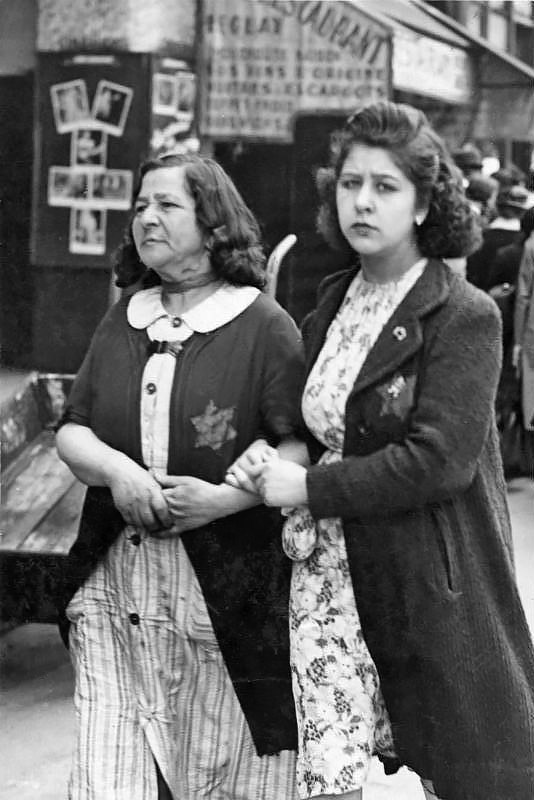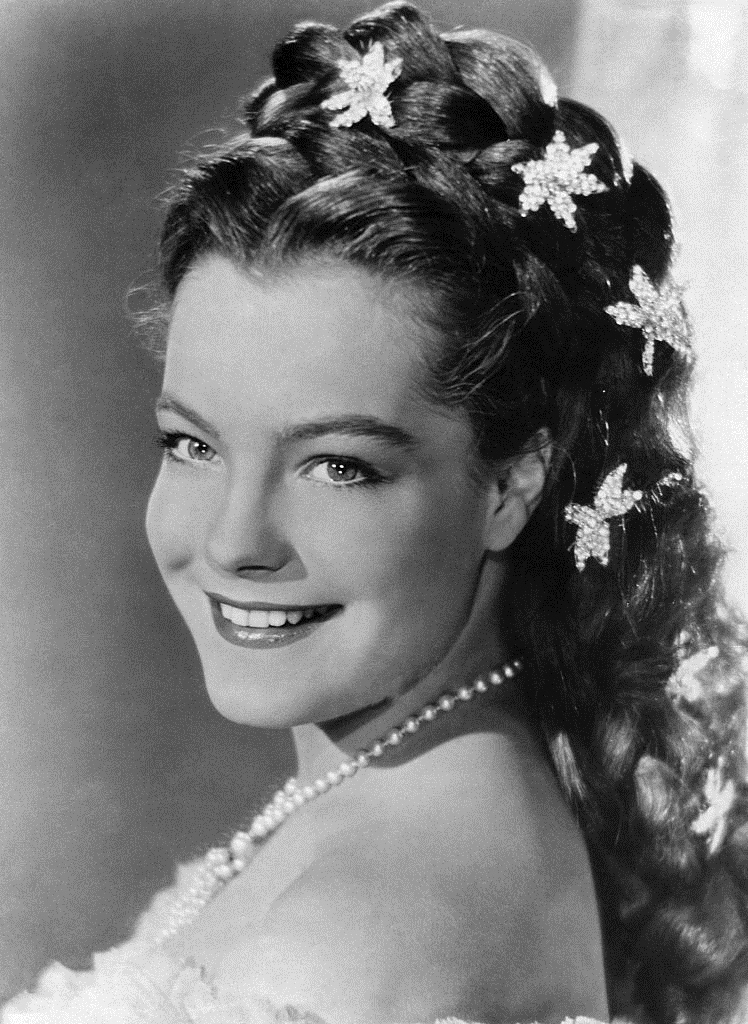|
Christian Didier
Christian Didier (11 February 1944 – 14 May 2015) came to public attention after 8 June 1993 as the assassin of René Bousquet, a friend of French President François Mitterrand, who had served as a senior police official under Vichy France, which administered the southern half of France during the German occupation. Directly after the killing, Didier telephoned a succession of newspaper editors in order to organise an ad hoc press conference, meaning that the police had no difficulty in locating him. In 2013, Didier unsuccessfully sued an author for defamation after the author, in a biographical book on Bousquet, described Didier as ''fou'' ("crazy", "mad"). Biography Provenance and early years Christian Didier was born at Saint Dié, then a small and relatively isolated industrial town in the Vosges foothills to the south-east of Nancy. His father is described in sources as an "artisan hairdresser", with whom he was frequently involved in violent conflict. Despite more than ... [...More Info...] [...Related Items...] OR: [Wikipedia] [Google] [Baidu] |
René Bousquet
René Bousquet (; 11 May 1909 – 8 June 1993) was a high-ranking French political appointee who served as secretary general to the Vichy French police from May 1942 to 31 December 1943. For personal heroism, he had become a protégé of prominent officials before the war and had risen rapidly in the government. In 1949, he was automatically convicted as a Vichy official and sentenced to five years of ''indignité nationale'', but his sentence was reduced due to beliefs that he also aided the French Resistance and attempted to preserve some autonomy for French police during the German occupation. Excluded from the government, he went into business. After receiving amnesty in 1959, Bousquet became active again in politics by supporting left-wing politicians through the 1970s and becoming a regular visitor in the 1980s of François Mitterrand after his election as president. In 1989, after years of increasing accusations about his activities during the war, Bousquet was accused by ... [...More Info...] [...Related Items...] OR: [Wikipedia] [Google] [Baidu] |
L'Express
''L'Express'' () is a French weekly news magazine headquartered in Paris. The weekly stands at the political centre in the French media landscape, and has a lifestyle supplement, ''L'Express Styles'', and a job supplement, ''Réussir''. History and profile ''L'Express'' was co-founded in 1953 by Jean-Jacques Servan-Schreiber, future president of the Radical Party, and Françoise Giroud, who had earlier edited ''ELLE'' and went on to become France's first minister of women's affairs in 1974 and minister of culture in 1976. When founded during the First Indochina War, it was modelled on the US magazine ''Time'' and the German magazine ''Der Spiegel''. ''L'Express'' is published weekly. The magazine was supportive of the policies of Pierre Mendès-France in Indochina, and in general had a left-of-centre orientation. The magazine opposed the war in Algeria, and especially the use of torture. In March 1958, as a result of an article of Jean-Paul Sartre reviewing the book ''La Qu ... [...More Info...] [...Related Items...] OR: [Wikipedia] [Google] [Baidu] |
Gestapo
The (), abbreviated Gestapo (; ), was the official secret police of Nazi Germany and in German-occupied Europe. The force was created by Hermann Göring in 1933 by combining the various political police agencies of Prussia into one organisation. On 20 April 1934, oversight of the Gestapo passed to the head of the ''Schutzstaffel'' (SS), Heinrich Himmler, who was also appointed Chief of German Police by Hitler in 1936. Instead of being exclusively a Prussian state agency, the Gestapo became a national one as a sub-office of the (SiPo; Security Police). From 27 September 1939, it was administered by the Reich Security Main Office (RSHA). It became known as (Dept) 4 of the RSHA and was considered a sister organisation to the (SD; Security Service). During World War II, the Gestapo played a key role in the Holocaust. After the war ended, the Gestapo was declared a criminal organisation by the International Military Tribunal (IMT) at the Nuremberg trials. History After Adol ... [...More Info...] [...Related Items...] OR: [Wikipedia] [Google] [Baidu] |
Klaus Barbie
Nikolaus "Klaus" Barbie (25 October 1913 – 25 September 1991) was a German operative of the SS and SD who worked in Vichy France during World War II. He became known as the "Butcher of Lyon" for having personally tortured prisoners—primarily Jews and members of the French Resistance—as the head of the Gestapo in Lyon. After the war, United States intelligence services, which employed him for his anti-communist efforts, aided his escape to Bolivia, where he advised the regime on how to repress opposition through torture. The United States later offered France a formal apology for aiding Barbie's escape from an outstanding arrest warrant. In Bolivia, West German Intelligence Service recruited him. Barbie is suspected of having had a role in the Bolivian coup d'état orchestrated by Luis García Meza in 1980. After the fall of the dictatorship, Barbie no longer had the protection of the government in La Paz. In 1983, he was extradited to France, where he was convicted of c ... [...More Info...] [...Related Items...] OR: [Wikipedia] [Google] [Baidu] |
Lyon
Lyon,, ; Occitan: ''Lion'', hist. ''Lionés'' also spelled in English as Lyons, is the third-largest city and second-largest metropolitan area of France. It is located at the confluence of the rivers Rhône and Saône, to the northwest of the French Alps, southeast of Paris, north of Marseille, southwest of Geneva, northeast of Saint-Étienne. The City of Lyon proper had a population of 522,969 in 2019 within its small municipal territory of , but together with its suburbs and exurbs the Lyon metropolitan area had a population of 2,280,845 that same year, the second most populated in France. Lyon and 58 suburban municipalities have formed since 2015 the Metropolis of Lyon, a directly elected metropolitan authority now in charge of most urban issues, with a population of 1,411,571 in 2019. Lyon is the prefecture of the Auvergne-Rhône-Alpes region and seat of the Departmental Council of Rhône (whose jurisdiction, however, no longer extends over the Metropolis of Lyo ... [...More Info...] [...Related Items...] OR: [Wikipedia] [Google] [Baidu] |
Prison Saint-Paul
Prison Saint-Paul, also named Prison Saint-Paul - Saint Joseph was the maison d'arrêt of Lyon, France, located in the Confluence quarter, 2nd arrondissement of Lyon, in the south of the Gare de Lyon-Perrache. It was so named because of its proximity to the Palais de Justice and its address is 33 cours Suchet. The building, being too old, is now the subject of new projects. All prisoners have been moved to the new prison of Corbas. History In 1847, the decision was made to construct a facility that could house 550 prisoners divided into 7 districts. Built in under the direction of the architect Louis-Pierre Baltard, its plans were previously drawn by Antonin Louvier on 14 February 1860, later approved by the General Council of the buildings on 7 April of the same year. The location was chosen in 1859 by the prefect of the Rhône Claude-Marius Vaïsse and approved by the Conseil Général du Rhône. In 1984, a scheduled expansion of the prison on the street Delandine was rejected by ... [...More Info...] [...Related Items...] OR: [Wikipedia] [Google] [Baidu] |
César Award
Cesar, César or Cèsar may refer to: Arts, entertainment, and media * ''César'' (film), a 1936 film directed by Marcel Pagnol * ''César'' (play), a play by Marcel Pagnolt * César Award, a French film award Places * Cesar, Portugal * Cesar River, a river within the Magdalena Basin of Colombia * Cesar River, Chile * Cesar Department, Colombia Other uses * César (grape), an ancient red wine grape from northern Burgundy * French ship ''César'' (1768), ship of the line, destroyed 1782 * Recife Center for Advanced Studies and Systems (C.E.S.A.R), in Brazil * Cesar, a brand of dog food manufactured by Mars, Incorporated People with the given name * César (footballer, born May 1979), César Vinicio Cervo de Luca, Brazilian football centre-back * César (footballer, born July 1979), Clederson César de Souza, Brazilian football winger * César Alierta (born 1945), Spanish businessman * César Augusto Soares dos Reis Ribela (born 1995), Brazilian footballer * César Azpi ... [...More Info...] [...Related Items...] OR: [Wikipedia] [Google] [Baidu] |
Simone De Beauvoir
Simone Lucie Ernestine Marie Bertrand de Beauvoir (, ; ; 9 January 1908 – 14 April 1986) was a French existentialist philosopher, writer, social theorist, and feminist activist. Though she did not consider herself a philosopher, and even though she was not considered one at the time of her death, she had a significant influence on both feminist existentialism and feminist theory. Beauvoir wrote novels, essays, biographies, autobiographies, and monographs on philosophy, politics, and social issues. She was known for her 1949 treatise ''The Second Sex'', a detailed analysis of women's oppression and a foundational tract of contemporary feminism; and for her novels, including ''She Came to Stay'' (1943) and '' The Mandarins'' (1954). Her most enduring contribution to literature is her memoirs, notably the first volume, "Mémoires d'une jeune fille rangée" (1958), which has a warmth and descriptive power. She won the 1954 Prix Goncourt, the 1975 Jerusalem Prize, and the 1978 ... [...More Info...] [...Related Items...] OR: [Wikipedia] [Google] [Baidu] |
Romy Schneider
Romy Schneider (; born Rosemarie Magdalena Albach; 23 September 1938 – 29 May 1982) was a German-French actress. She began her career in the German genre in the early 1950s when she was 15. From 1955 to 1957, she played the central character of Empress Elisabeth of Austria in the Austrian '' Sissi'' trilogy, and later reprised the role in a more mature version in Luchino Visconti's '' Ludwig'' (1973). Schneider moved to France, where she made successful and critically acclaimed films with some of the most notable film directors of that era. Early life Schneider was born Rosemarie Magdalena Albach in Vienna, six months after the ''Anschluss'' of Austria into Nazi Germany, to actors Magda Schneider and Wolf Albach-Retty. Her paternal grandmother, Rosa Albach-Retty, was also an actress. Schneider's mother was German while her father was Austrian. Four weeks after Romy's birth, the parents brought her to Schönau am Königssee in Germany where she and later her brother Wo ... [...More Info...] [...Related Items...] OR: [Wikipedia] [Google] [Baidu] |
Catherine Deneuve
Catherine Fabienne Dorléac (born 22 October 1943), known professionally as Catherine Deneuve (, , ), is a French actress as well as an occasional singer, model, and producer, considered one of the greatest European actresses. She gained recognition for her portrayal of icy, aloof, and mysterious beauties for various directors, including Jacques Demy, Luis Buñuel, François Truffaut, and Roman Polanski.Catherine Deneuve Biography . Britannica Concise Encyclopedia. In 1985, she succeeded as the official face of , France's national symbol of liberty. ... [...More Info...] [...Related Items...] OR: [Wikipedia] [Google] [Baidu] |
David Bowie
David Robert Jones (8 January 194710 January 2016), known professionally as David Bowie ( ), was an English singer-songwriter and actor. A leading figure in the music industry, he is regarded as one of the most influential musicians of the 20th century. Bowie was acclaimed by critics and musicians, particularly for his innovative work during the 1970s. His career was marked by reinvention and visual presentation, and his music and stagecraft had a significant impact on popular music. Bowie developed an interest in music from an early age. He studied art, music and design before embarking on a professional career as a musician in 1963. "Space Oddity", released in 1969, was his first top-five entry on the UK Singles Chart. After a period of experimentation, he re-emerged in 1972 during the glam rock era with his flamboyant and androgynous alter ego Ziggy Stardust (character), Ziggy Stardust. The character was spearheaded by the success of Bowie's single "Starman (song), Starma ... [...More Info...] [...Related Items...] OR: [Wikipedia] [Google] [Baidu] |


.jpg)



.png)